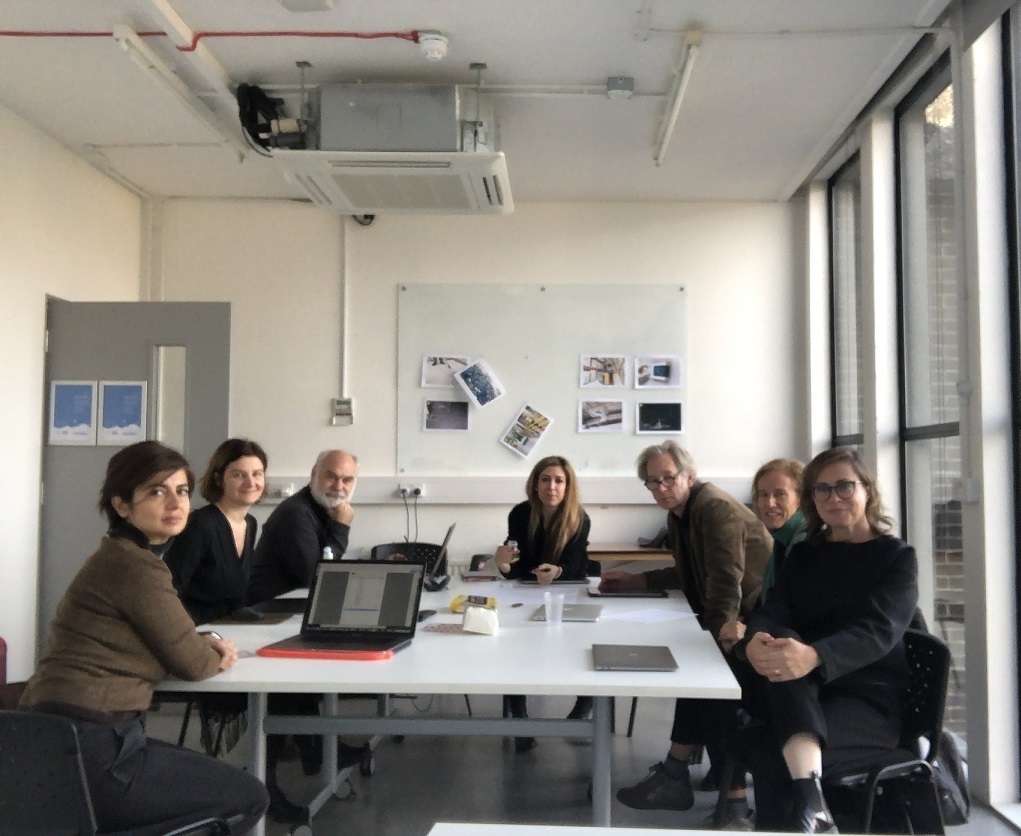TENTH TRANSNATIONAL MEETING HOSTED BY KU LEUVEN, Ghent (in-person)
Transnational Meeting 10
Date: 24-25 October, 2022
Location: KU Leuven Faculty of Architecture, Ghent (in person)
Attendees in presence: Michela Barosio (Politecnico di Torino); Santiago Gomes (Politecnico di Torino); Dag Boutsen (KU Leuven); Andrea Čeko (Sveučilište U Zagrebu); Harriet Harriss (RCA) ; Mia Roth Cerina (Sveučilište U Zagrebu); Carla Sentieri Omarrementeria (Universitat Politècnica de València) ; Hanne Van Reusel (KU Leuven & UAntwerpen);
Attendees online: Federica Vannucchi (Royal College of Art).
MONDAY 24.10
9:30 coffee
10:00 State of affairs report
10:30 Report writing in smaller groups
12:30 lunch
14:00 Recap report writing
15:00 Book brainstorm: Where are the gaps?
16:00 Short break
16:15 Book brainstorm
Make planning
17:00 End of the work session
TUESDAY 25.10
9:00 Writing session I in groups
11:30 Reporting on work session
12:30 Lunch
12.30 Michela, Fede etc to meet on zoom with Luiza
(info from Luiza: final report due February 28)
14:00 Writing session II in groups
16:00 Short break
16:15 Recap meeting
17:00 End of the work session
TO DO’S:
Questions for Routledge:
make sure part of book (introduction remains publicly accessible)
respond to reviews
deadline to submit chapters: March 31 2023
Production:
Write report
Executive summary + White papers
Translation of (executive) report into French
Glossary document: BOOK
Dissemination:
press release: preview findings of the report
CONCLUSIONS:
Discussion on the final report document. The draft document of the final report has been reviewed by the entire team during the meeting. Open questions (in remarks) have been discussed and resolved. Tasks that still need to be followed up are divided under the team.
The received feedback on the book proposal has been discussed and the proposal document has been edited accordingly.
The team discussed the various outcomes, results and outputs of the project and discussed how these can be translated to policy recommendations.
The presentation for the upcoming ME has been discussed and developed.
At the end of the meeting, the team members set out a new range of deadlines and a working plan in order to finalize the reports and IO’s for the Architecture’s Afterlife project.
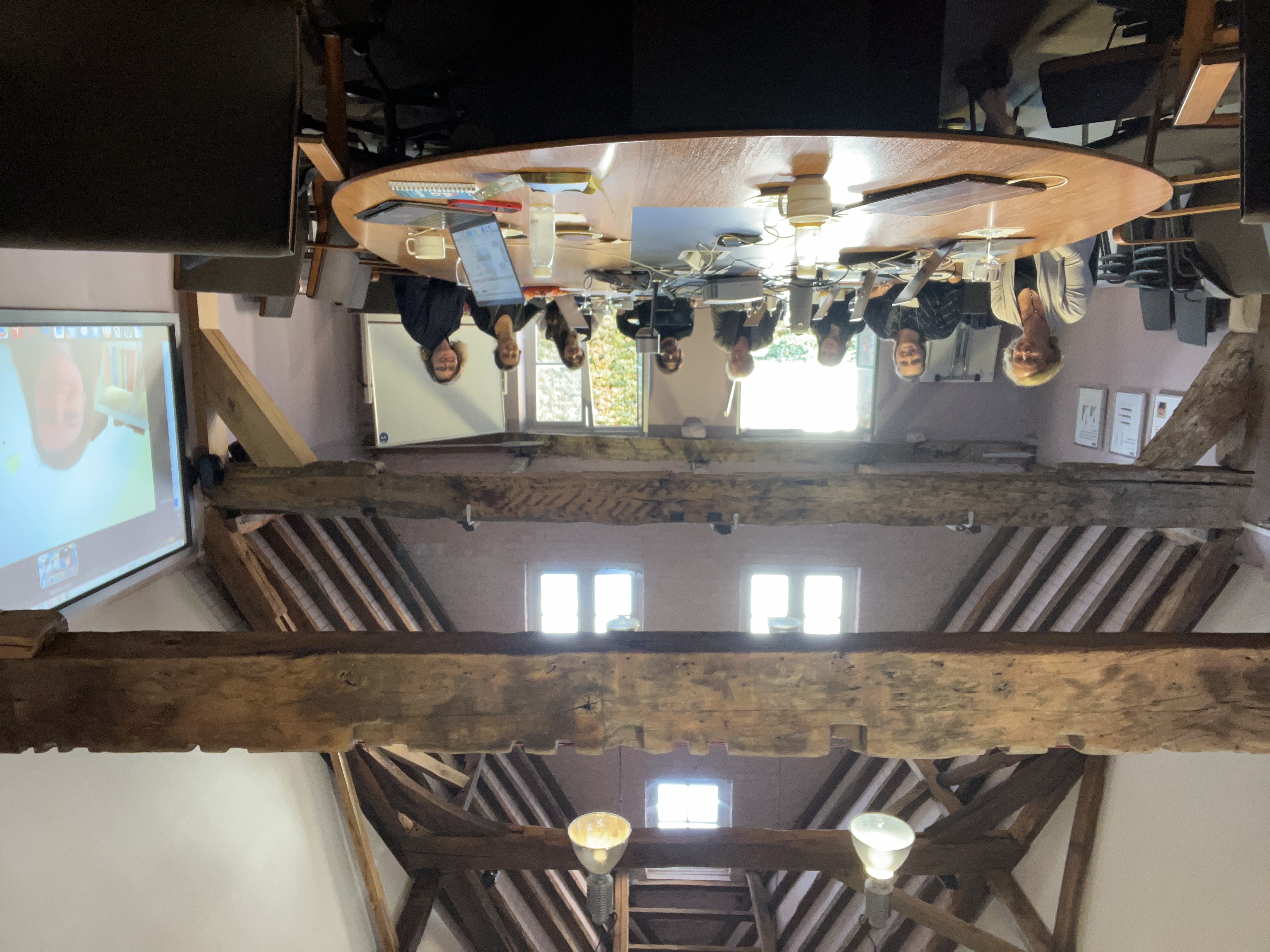
_____________________________________________
INTERIM HYBRID MEETING HOSTED BY THE UNIVERSITY OF ZAGREB, Zagreb (in person and online)
Dates: June 21-22, 2022
Attendees in presence: Michela Barosio (Politecnico di Torino); Santiago Gomes (Politecnico di Torino); Andrea Čeko (Sveučilište U Zagrebu); Mia Roth Cerina (Sveučilište U Zagrebu);
Attendees online: Dag Boutsen (KU Leuven); Haydée de Loof (Universiteit Antwerpen); Carla Sentieri Omarrementeria (Universitat Politècnica de València) ; Federica Vannucchi (Royal College of Art) ; Hanne Van Reusel (KU Leuven & UAntwerpen)
In order to facilitate final activities in an intense working session, the team met before the final TM and MEs. As it was not a Transnational meeting, those in proximity came in person and those further away attended online. The focus was the design of the final reports, the book, academic papers and conference contributions.
Agenda:
June 21
14:00-15:30 Finalizing book proposal
Routledge submission: book chapter abstracts + other BOOK points
15:30-17:30 Papers and Conferences
authors and topics (as proposed in WP4)
review of the proposed papers TIMELINE
17:30-18:00 Next ME05 in Valencia
review of the earlier PROGRAM draft, proposed activities and guest list
Final TM Oct 24-25, place TBD
June 22
9:30-10:30 Reports + final report
definition of tasks for the reports
final report template
10:30-13:00 Summary of activities + moving forward
definition of tasks + review of all the deadlines
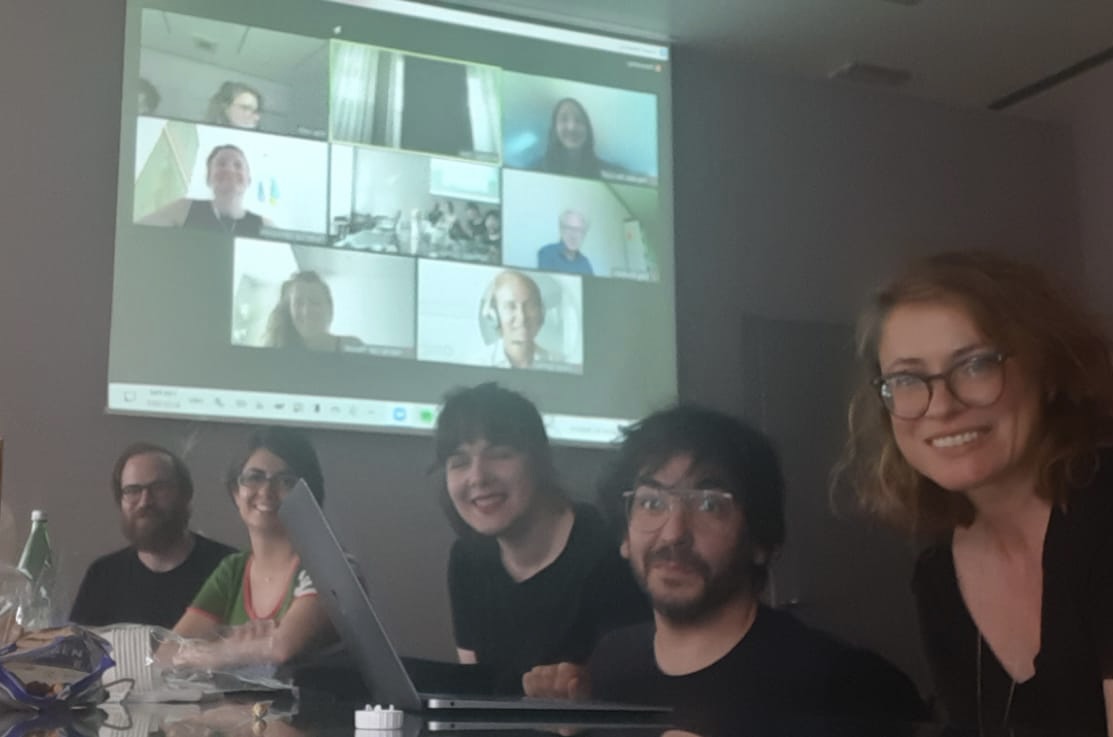
_____________________________________________
NINTH TRANSNATIONAL MEETING HOSTED BY POLITECNICO DI TORINO, TURIN (in-person)
Dates: May 19-20, 2022
Attendees in presence: Michela Barosio (Politecnico di Torino); Santiago Gomes (Politecnico di Torino); Dag Boutsen (KU Leuven); Andrea Čeko (Sveučilište U Zagrebu); Haydée de Loof (Universiteit Antwerpen); Mia Roth Cerina (Sveučilište U Zagrebu); Hanne Van Reusel (KU Leuven & UAntwerpen);
Attendees online: Carla Sentieri Omarrementeria (Universitat Politècnica de València) ; Federica Vannucchi (Royal College of Art) online.
In the Transnational meeting, the partners discussed: 1. The final structure to be given at the final report that has to be submitted to the Erasmus+ and how to embed the WP reports provided for the multiplier events into the final report 2. The 10 POINT defined in the London transnational meeting and how some of them have to be better defined and how some overlapping concepts have to be more precisely framed 3. The structure of the book proposal and assignment of the chapters to the partners. 4. The topic and the authors of the papers and articles to disseminate the research findings 5. The opportunity of moving the last multiplier event from Zagreb to Madrid during the EAAE Annual conference in order to reach a more extensive and diverse audience.
Agenda:
Thursday May 19
10:00-12:30 Final report: Discussion on the structure and the content of the Final report to submit and on the Wp reports
14:00-15:30 10 Points TEN POINTS and
Clarifications of the Arguments of the project (and as related to the 10 points)
15:30-17:30 Book proposal.
17:00-18:00 Articles and Conferences: Deadlines timetable to verify
Check the covering of the topics promised in the proposal as in WP4.
Filling the timeline of proposed papers TIMELINE
Friday May 20
9:00-10:30 summary of activities: how to move forward with the project (definition of tasks)
10:30-13:00 next Multiplier Event in Zagreb (program and tasks)
Who to invite
Activities of dissemination
Meeting outcomes:
Final Report’s structure and contents organisation
Reorganisation of the book proposal and specification on the points with possible overlapping
Definition of the graphical guidelines for the book proposal
Posticpation and Moving of the multiplier event from Zagreb to Madrid
Structure and guidelines for the policy recommendations
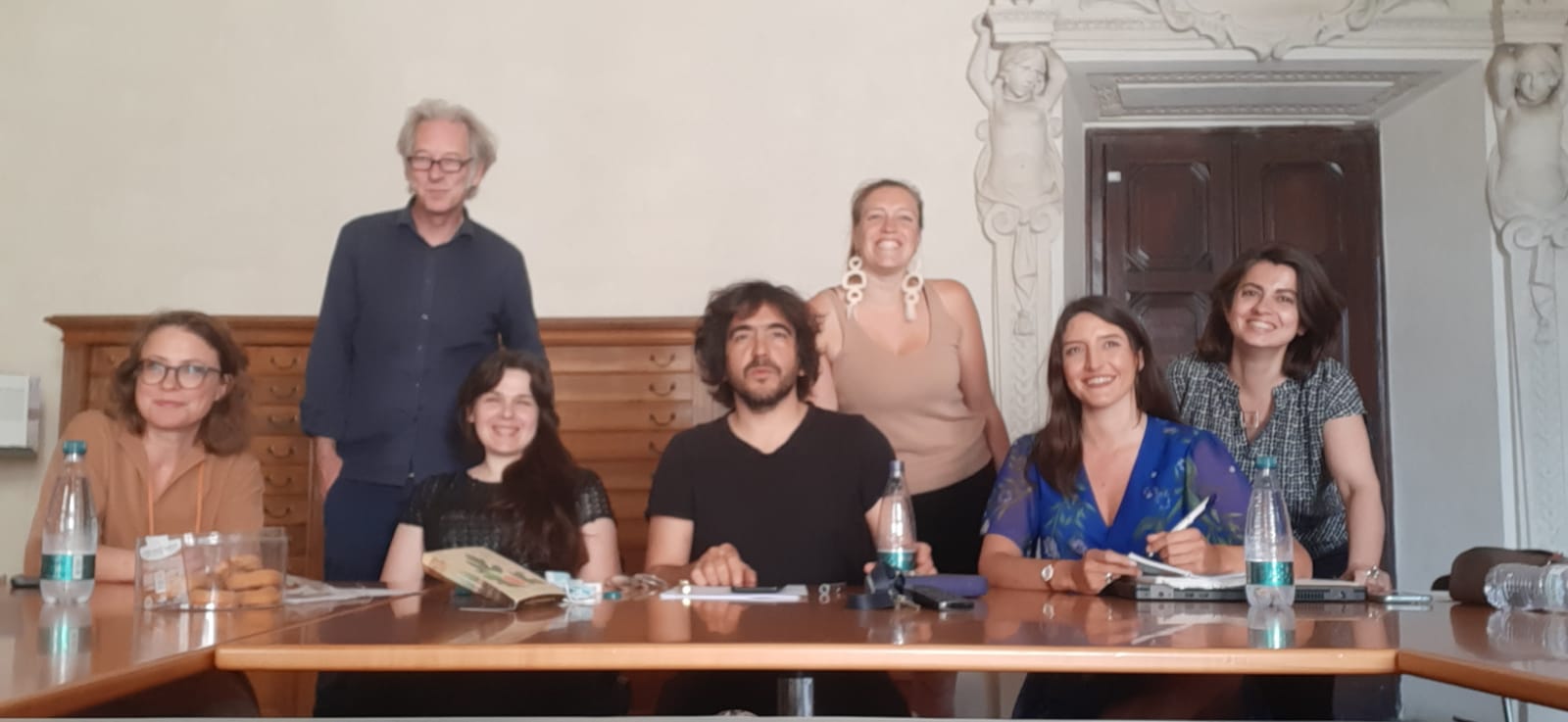
_____________________________________________
EIGHTH TRANSNATIONAL MEETING HOSTED BY THE ROYAL COLLEGE OF ART, LONDON (in-person)
Dates: February 9-10, 2022
Attendees: Harriet Harriss (Royal College of Art) ; Michela Barosio (Politecnico di Torino) (in-person) ; Dag Boutsen (KU Leuven) ; Andrea Čeko (Sveučilište U Zagrebu) ; Mia Roth Cerina (Sveučilište U Zagrebu); Carla Sentieri Omarrementeria (Universitat Politècnica de València) ; Federica Vannucchi (Royal College of Art); Hanne Vanreusel (KU Leuven)
On 9-10 February 2022, we met in-person in London to discuss the following: 1) definition of the four flows (architecture, related to architecture, creative industries and other); 2) the analysis of the in-depth interviews for the four flows; 3) the lesson learned by the quantitative and qualitative analysis of the flows. The meeting produced what we have called the “10 points of Architecture’s Afterlife” which are the outcomes of the study. These are: 1) AE provides a transversal/cross-boundary approach to problems and challenges; 2) Architecture, (as) a mindset; 3) Architecture, (as) a ‘method’, a ‘modus operandi’; 4) architecture as a professional title; 5) AE provides hard/soft competences; 6) mismatches between architectural education and professional outcomes; 7) on collective work and individual responsibilities; 8) on production of values; 9) design and construction process and its temporal perception; 10) blurred limits between architecture and other sectors.
Agenda:
definition of flows (Federica Vannucchi, Royal College of Art)
Flow “architecture” (Michela Barosio & Santiago Gomes, Politecnico di Torino)
Flow “related to arch.” (Carla Sentieri, Universitat Politècnica de València)
Flow “creative industries” (Dag Boutsen & Hanne Vanreusel, KU Leuven)
Flow “others” (Federica Vannucchi, Royal College of Art)
definitions of architecture in history (Andrea Čeko, Sveučilište U Zagrebu)
definition of clusters : drawing & paper session to analyze and combine the in-depth interview results
how to move forward with the project (next tasks / definition of tasks / discuss if we want to bring discussions on labor, or other topics that would make us to explore further the interviews)
next Meeting with the External Advisory Board
Meeting Outcomes:
1. Analysis of the in-depth interviews by flows
2. Interpretation of the qualitative and quantitative analyses
3. Production of the “10 Point of Architecture’s Afterlife”
4. General organization of the meeting with the External Advisory Board.
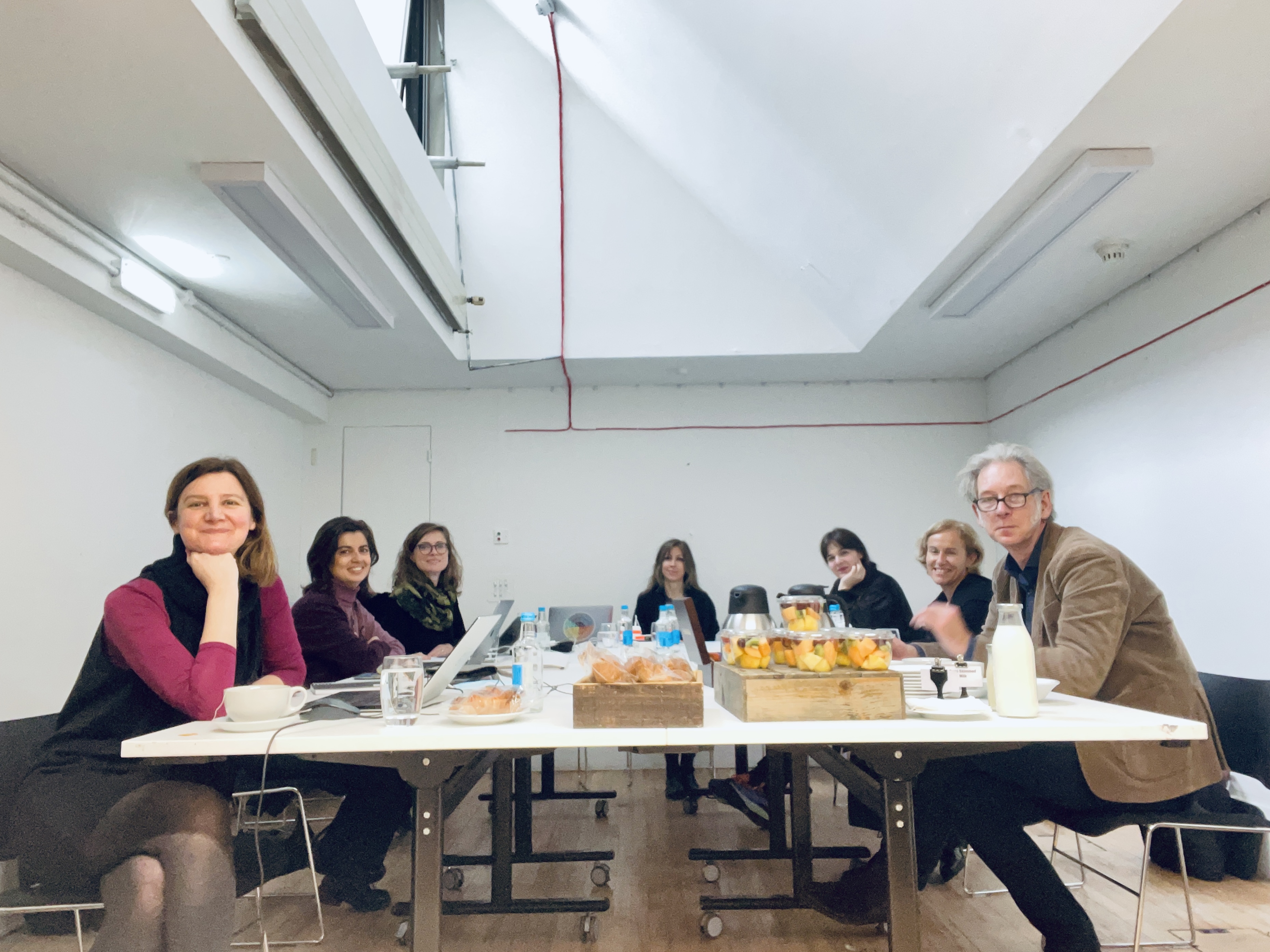
_____________________________________________
SEVENTH TRANSNATIONAL MEETING HOSTED BY UNIVERSITEIT ANTWERPEN (in-person)
Dates: September 7-8 2021
Attendees: Harriet Harriss (Royal College of Art) (on-line); Michela Barosio (Politecnico di Torino) (in-person) ; Dag Boutsen (KU Leuven) (in-person); Andrea Čeko (Sveučilište U Zagrebu) (on-line); Haydée De Loof (KU Leuven) (in-person); Johan De Walsche (Universiteit Antwerpen) (in-person); Mia Roth Cerina (Sveučilište U Zagrebu) (in-person); Carla Sentieri Omarrementeria (Universitat Politècnica de València) (on-line); Federica Vannucchi (Royal College of Art) (in-person); Hanne Vanreusel (KU Leuven) (in-person).
On 7-8 September 2021, we met both on-line and in-person to discuss the following: 1. a preliminary analysis of the Afterlife survey; 2. formulate the questions to be asked in the in-depth interviews for the four flows; 3. finalize the organization of the upcoming Multiplier Event O3 in Torino scheduled on 1st October. Haydee De Loof has reported on the Afterlife survey and the partners discussed how its results ask for a new definition of the four flows. The flows can be understood both from the side of the different jobs performed (architect; related to architecture; creative industries; others) or from the perspectives of the institutions that the study’s results are addressing.
Agenda:
FORMULATION OF HYPOTHESIS + QUESTIONS TO EXPLORE IN THE SURVEY
QUESTIONS FOR IN-DEPTH INTERVIEWS
PREPARATION ME O3 TORINO
Meeting Outcomes:
1. Definition of the strategies to apply for the in-depth interviews
2. Definition of questions to be asked in the in-depth interviews
3. Calendar for the conduction of the in-depth interviews
4. General organization MEO3 in Turin.
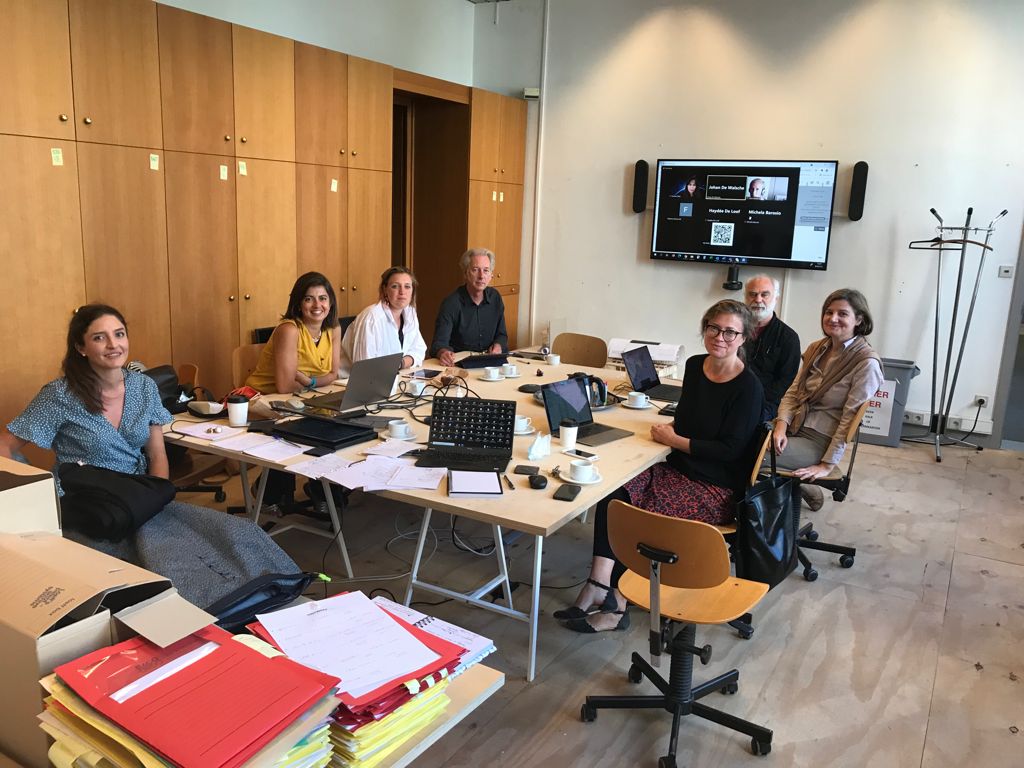
_____________________________________________
SIXTH TRANSNATIONAL MEETING HOSTED BY KU LEUVEN (on-line)
On 21 June 2021, we met on-line to discuss the overall state of the project, its imminent deadlines and future developments. Haydee De Loof and Johan De Walsche have explained the three parts process of the survey analysis which will lead to the writing of IO2: Afterlife Reports. These are: 1. Descriptive analysis and compilation of the visual for the website; 2. analysis of variance, where comparisons between datas are made; 3. Exploration of patterns based on the formulation of hypotheses and questions. The first two phases will be completed at the end of June, and the third will be made in September during the first in-person Transnational Meeting after the pandemic. The partners also discussed the final product of the project and decided to collect the academic papers in a book format with infographics, extracts from the Multiplier Events and Transnational Meetings, and pertinent documents.. The publication will target scholars, students, and professional boards alike. Finally, the partners discussed the next Multiplayer Event set in Turin for next October. The event will consist of presentations from members of professional bodies and experts in international mobility.
Agenda: 1. Progress of the project in the next six months; 2. Overall outcome of the project; 3. Conferences; 4. Next Transnational Meeting and organization of Haydee’s survey analysis; 5. Academic Papers; 6. Discussion on the two Multiplier Events; 7. Next ME in Turin.
Meeting Outcomes: 1. Definition of the three stages of IO2: Afterlife Reports.; 2. Definition of essential points emerged in the Multiplier Event O1 and O2.; 3. Setting for developing key issues to be discussed in IO 4: Academic Papers.; 4. General organization MEO3 in Turin.; 5. The overall conclusion of the project will be a book.
_____________________________________________
FIFTH TRANSNATIONAL MEETING HOSTED BY THE UNIVERSITY OF TURIN (on-line)
On 3 March 2021, we met on-line to discuss the following topics: 1. Multiplier Event O1; 2. Calendar and Intellectual Outputs; 3. Administration and Certificate of Attendance; 4. Dissemination. The partners are working on editing the transcription of the Multiplier Event O1. Once completed, the edited transcription together with the visuals presented by the speakers will be shared in the website and will be an essential part of the Afterlife Reports. As next Intellectual Output, the Afterlife Reports will address the pedagogic of architecture curricula; formulation of impact upon construction industry; pedagogic impact of the study for HE curricula: trans- and interdisciplinary curricula) UA; formulation of impact upon non-construction sectors: creative industries; formulation of impact upon other sectors; study of regional mobility in relation to qualification; and formulation of recommendations regarding employment, guidance on skills and qualification. The writing of the Afterlife Reports will start as soon as the Architecture’s Afterlife survey reaches a critical number of responses. The partners also addressed the way to implement the survey responses that the COVID pandemic has proven to slow down.
Fifth transnational meeting minutes
_____________________________________________
FOURTH TRANSNATIONAL MEETING HOSTED BY UPV IN VALENCIA (ONLINE)
On December 10th 2020, we met on-line to discuss the overall media strategies for the dissemination of the survey; the preparation for the upcoming Multiplier Event schedule on 19 February, 2021 (8am-12 EST 2-6pm CET); the newly redefined calendar for the project; and the upcoming events at Pratt School of Architecture, NY, on Harriet Harriss’ book Architects After Architecture which is part of the Architecture’s Afterlife project. The partners have created an account on Facebook, Twitter and LinkedIn to effectively publicize the study and disseminate the survey. This media strategy will be applied also to the Multiplier Events, of which the first one is scheduled for next February. This Multiplier Event was discussed and a program was laid out consisting of 12 interviews of people who have been trained as architects and yet are working at the “fringes” of architecture. The interviews will ask what are the skills acquired in their training that are most useful in their practice, how the practice of architecture has changed, and how school curricula can adapt or even anticipate these changes. The program will include the 12 interviewers divided in categories, such as activists, curators, artists, pedagoges, and so forth. These interviews will be part of the in-depth interviews related to the survey outcomes. Lastly, the partners also discussed a sequence of four events at the Pratt School of Architecture, NY, dedicated to the publication Architectes After Architecture. The first two are scheduled for the Spring semester and are dedicated respectively to “Tech” and “Activism.”
Fourth transnational meeting minutes
_____________________________________________
THIRD TRANSNATIONAL MEETING / INCEPTION EVENT HOSTED BY THE UNIVERSITY OF ANTWERP
INCEPTION EVENT, OCT 8th 2020, 8:00 AM EST, 1:00 PM GMT, 2:00 PM CET
On 8 October 2020, we met on-line with the External Advisory Board. The partners presented the Architecture’s Afterlife project and launched the new survey and the website. The presentations were followed by a discussion between the partners and the members of the Advisory Board. Thomas Vonier underlined the importance of defining a clear outcome. He detected some tension about what the project really intends to do: from one side it aims at defining the demands of the workplace in architecture today and whether schools are meeting those demands; from the other, it looks at the value of an architecture education in other fields. He also mentioned a fundamental issue regarding the research which is how many architects are really needed in this environment and what skills and what knowledge are most critical. Lynne Dearborn questioned how an architecture education supports its graduates over the lifetime of their professional careers in whatever field they choose. Anna-Maria Meister stressed the problem of how one defines “leaving the profession,” that is what is an architect outside of a legal definition. David Gloster asked to consider how the profession is not necessarily meeting graduates’ expectations. Patrick Flynn remarked that the teaching of architecture should address not simply the professional demands of today but of 50 years from now, while preparing students for lifelong learning. Roberto Cavallo mentioned the need to incorporate more skills in our schools where a wider understanding of the environment is needed, but, at the same time, schools of architecture can not just pile up requirements. It is essential to understand what is more important and related to the “lifelong learning” that Patrick Flynn has mentioned. Saverio Mecca also stressed the importance of looking at the demands of today as much as of the future. Hrvoje Njiric urged the partners to look at the overproduction of architects in certain countries; the relationship between architecture practice and the economy of each country; and the efficiency of the chambers of architects. Hannah Vowles spoke of the difference between practice, profession, discipline, training, and education. She also urged the partners to look at who gets to enter the field of architecture in relation to class, gender, race and disability.
2:00-2:20 Welcome and Presentation of Partners and Members of the Advisory Board
2:20-2:35 Harriet Harriss (Royal College of Art): Introduction
10 minutes questions
2:45-2:55 Dag Boutsen (KU Leuven) and Michela Barosio (Politecnico di Torino): Aims and Dissemination
2:55-3:00 Carla Sentieri Omarrementeria (Universitat Politècnica de València): Bibliography
10 minutes questions
3:10-3:20 Mia Roth Cerina (Sveučilište U Zagrebu): Launch of the Website
3:20-3:40 Johan De Walsche (Universiteit Antwerpen) and Haydée De Loof (Universiteit Antwerpen): Launch of the Survey
10 min break
3:50-4:25 Discussion
4:25-4:30 Harriet Harriss (Royal College of Art): Final Remarks
View the Inception Event Minutes here
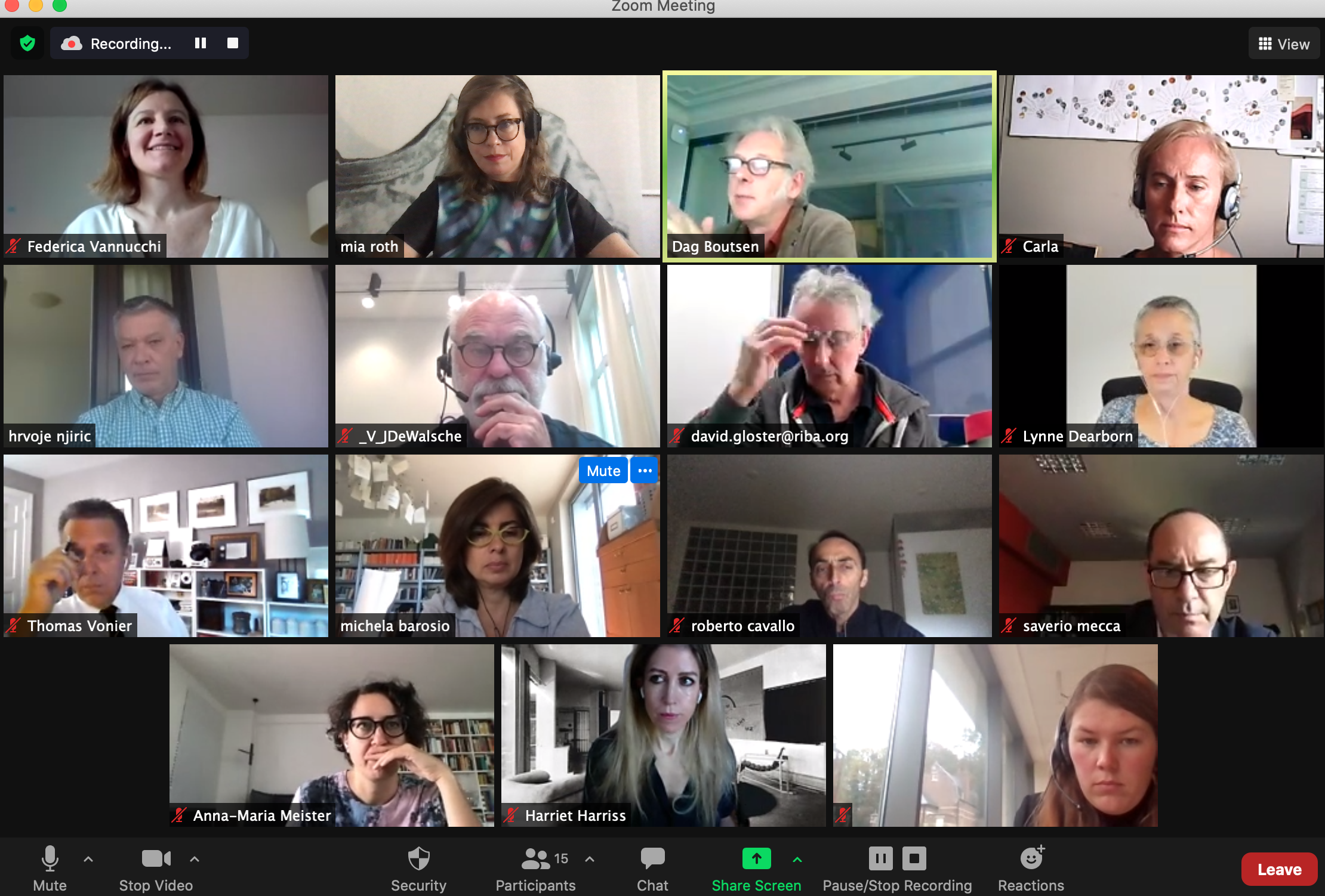
_____________________________________________
SECOND TRANSNATIONAL MEETING HOSTED BY THE FACULTY OF ARCHITECTURE IN ZAGREB
On 27 February 2020, we met at the University of Zagreb for our second two-day Transnational Meeting. We discussed the Architecture’s Afterlife website, the questions to be included in the survey, and the various ways to disseminate the study. The University of Zagreb presented the preview of the website with its intentionally informal and friendly interface, a dynamic placement of information and its use of one typeface in serif and sans-serif which emphasizes the “afterlife” of architecture. The University of Antwerp and the Catholic University of Leuven presented some findings from the survey entitled “Architectural Education: A Progression Inquiry” conducted by the partners in 2018. Included in this early survey, the open-ended question “Which were the most important skills you have learned in your architectural education?” is central to the Architecture’s Afterlife study. Its answers were analyzed and categorized with the intention to reformulate a new multiple-choice question in the Architecture’s Afterlife survey. A first categorization of the skills mentioned in the answers included: creativity, research, endurance, teamwork, architectural thinking, and ability to doubt. Significantly, only half of the skills developed by architects during their school years are related to the discipline of architecture, while the other half are social or emotional skills. Although the professional qualifications for architects laid down by the European Commission (Directive 2005/36/EC) do not include social skills as learning outcomes, there is an “emotional intelligence” that the schools of architecture in Europe clearly teach and architects understand as essential. The Architecture’s Afterlife study intends to acknowledge and analyze in depth these skills to understand their role in today’s architecture practices and interdisciplinary value.
Second transnational meeting minutes
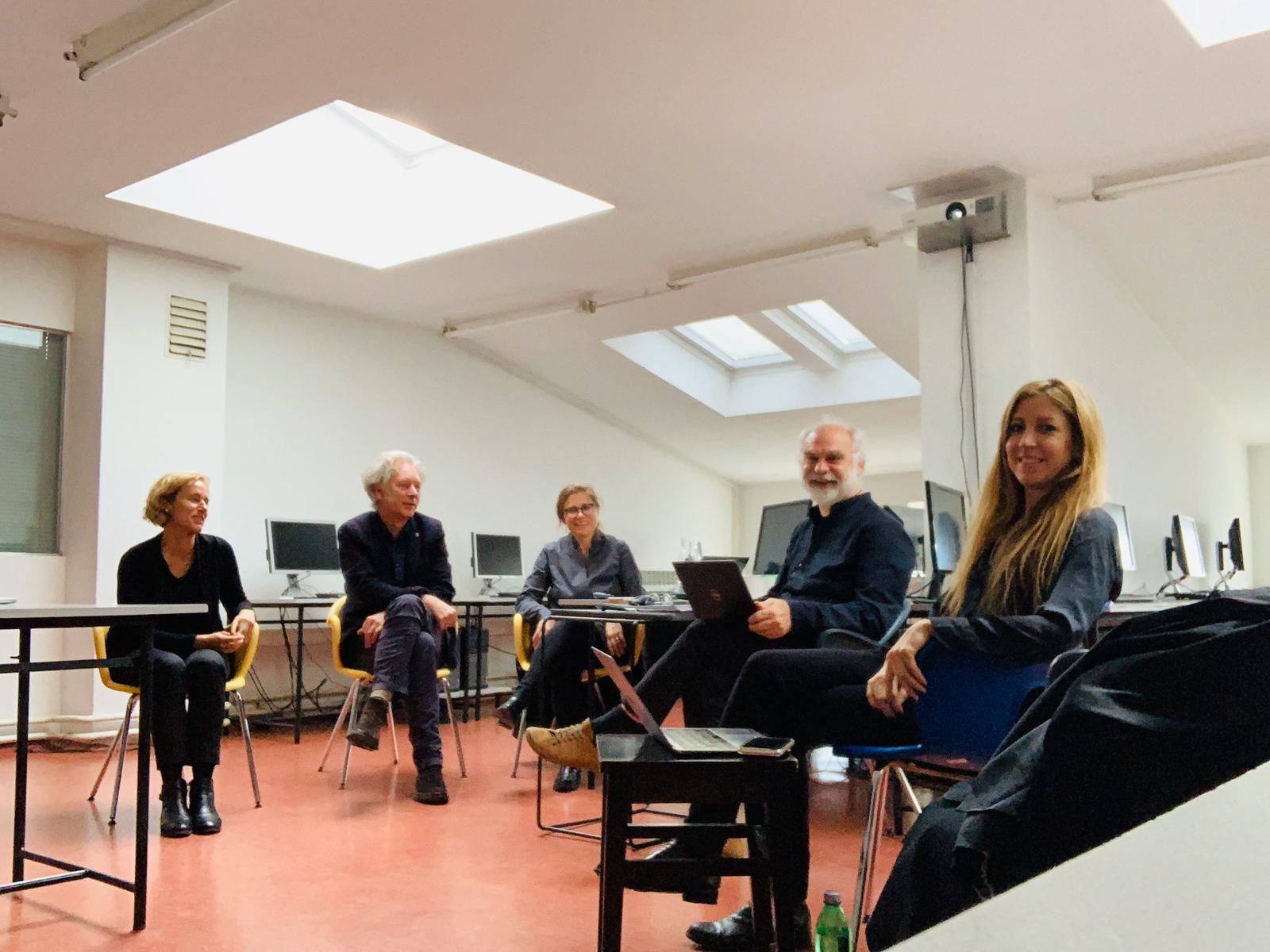
_____________________________________________
FIRST TRANSNATIONAL MEETING HOSTED BY THE ROYAL COLLEGE OF ART, LONDON
On 13 December 2019, we met in London at the Royal College of Art for our first two-day Transnational Meeting. The partners restated the objectives and methodological approach of Architecture’s Afterlife together with the research timeline. The project aims to study why on average, 40% of European Architecture graduates migrate to sectors other than architecture. The Architecture’s Afterlife survey and interviews will allow us to understand the quantitative and qualitative aspect of this migration and also to collect important data including dropout rates by school and country, or professional choices by gender. We had a preliminary conversation on the findings from a survey entitled “Architectural Education: A Progression Inquiry” which was launched in January 2018 and provided initial data for developing Architecture’s Afterlife. The layout and content of the Architecture’s Afterlife website was also discussed including the philosophy of the study, a descriptive bibliography, reports of the Multiplier and Transnational Meetings, the findings from the 2018 survey and the link to the Architecture’s Afterlife survey.
First transnational meeting minutes
